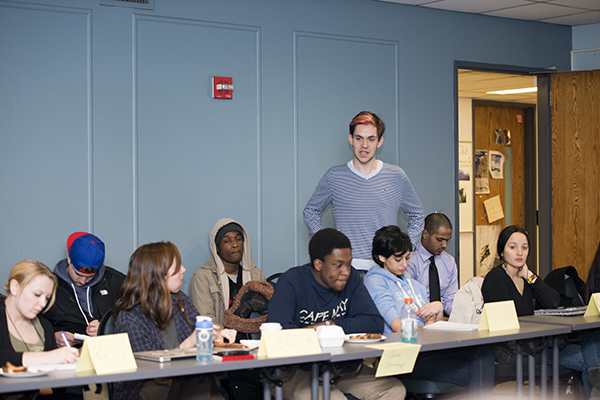

At a recent Student Association (SA) meeting, SA discussed their support for legislation that encourages SUNY New Paltz’s next student healthcare policy to include healthcare benefits for transgendered students.
SA Executive Vice President Zachary Rousseas said as a member of the Queer Student Union, it became increasingly apparent to him that many students felt the current healthcare plan was not adequately serving the transgendered campus community.
A new student healthcare plan is put in place every three years, Rousseas said. The health center is currently in the negotiation stage and deciding what they hope to include in the new healthcare plan. They will then receive bids from healthcare companies who can meet all these desires and choose the one most affordable.
Rousseas said the current healthcare plan the college offers includes a stipulation that treatments related to gender identity will not be covered in the plan. SA’s passing of legislation in support of the removal of that stipulation demonstrates to the Health Center the importance of allowing students to access treatments based on their gender identity, he said.
“We are recommending to the Health Center that the plan they choose covers treatment related to gender identity,” Rousseas said. “At this point we are being a recommending body. Other than that, ultimately the power is in their hands. But they are keeping an eye on us and keeping an eye on other organizations, because they know that students do want this.”
Rousseas said the representatives from the Health Center are responding to the concern positively.
“We have spoken to the insurance broker who gave us various prices,” Health Center Assistant Director Lori Mitchell said. “We certainly support looking at all the available options.”
Although Mitchell was unsure of when the new healthcare plan would be decided on and implemented, she said the time until then has been used for discussing the options and evaluating the best choice possible.
“From my understanding there are two other SUNY schools that cover hormone treatment,” she said. “New Paltz would be the first SUNY to not specify what specific treatments transgendered students can get, but offer whatever treatments transgendered students would need as long as they are on the student health insurance policy.”
Despite the fact that few healthcare companies currently offer healthcare services for transgendered students’ needs, Rousseas said he is hopeful the addition to the healthcare policy will occur this year. If not, he said he “guarantees” the increased visibility of the issue will result in transgendered healthcare within the New Paltz student healthcare policy sometime within the next three years.
With approximately 50 other universities across the United States that already have the healthcare policy SA and the transgendered community hope to achieve here at New Paltz, Rousseas said New Paltz is at the forefront of an issue dealing with a very basic right for students.
“More and more schools are realizing they’re not serving their students,” Rousseas said. “People are becoming more and more aware that transgender people exist, and that they have needs just like anyone else.”
